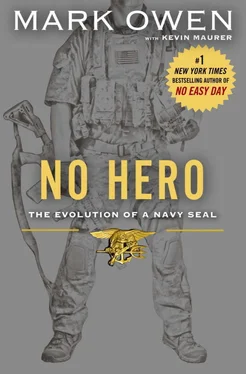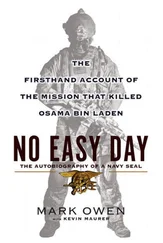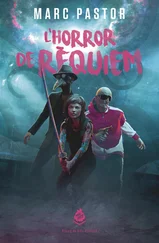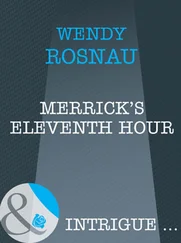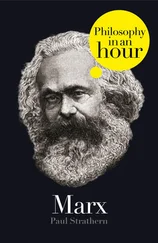I wrote No Easy Day to encourage young people and share with the world the sacrifices that our servicemen and women face on a daily basis. I wanted people to understand the community, which is made up of people who go into harm’s way daily. I wanted to show the human side of the SEALs after months of hero worship from the politicians.
Sitting in my home office, decorated with mementos from my years as a SEAL, under a picture of my BUD/S training class hanging on the wall, I worked on the book until I felt it captured the raid and the culture of the SEAL community perfectly. I wrote the book the same way I was trained, by enlisting the help of friends, family, and swim buddies. My closest friends gave me a lot of advice when I told them I was writing a book. They urged me to do it “right,” and not write another navel-gazing battle memoir that focused on me.
“Don’t be the douche bag who thinks he’s a superhero,” one friend told me. “Make sure it’s about the team.”
Another just laughed at me when I told him.
“Hey, buddy, if the SEAL community can fully back an action-packed Hollywood blockbuster like Act of Valor, I’m sure you’ll be fine with a book that pays respect back to the community,” he said.
I did my very best to write No Easy Day about the team and for the men and women I served with for more than a dozen years. When it was done, I waited for the publisher to announce it. I was the new guy on the team again and I trusted the experts to help me navigate the book launch. When word of the book came out in August 2012, the coverage shocked me. I don’t think I realized the storm I was walking into. The demand for the book far exceeded my expectations, but so did the backlash.
I was standing on the tarmac preparing to do a charity skydiving event in San Diego when I got the call. I was doing tandem skydives with folks willing to donate money to the SEAL Foundation for the chance to skydive with a SEAL.
I’ve been in some stressful situations, but hearing that my name had leaked was in the top ten for sure. For a split second, the stress consumed me. I guess in hindsight I was naïve to think I could maintain my privacy, but I never seriously considered it.
“Well, shit,” I thought.
I retreated from the crowd getting ready to jump and took a second to regroup. My training kicked in and I started to make a list of priorities. Skills that I figured were long gone suddenly mattered again. It was like when the instructors pulled off the hood during the hooded box drill. I was back in the box dealing with the situation. Soon, I started to come up with a list of things I needed to do. After the jump, I would start acting on the list.
What could I affect? My name had just leaked. There was no way I could affect anything in the press. I couldn’t stuff the words back into the producer’s mouth, although I would have loved to meet the Fox News producer and make an attempt with my foot.
First, I had to make sure my parents moved to a safe location away from the prying eyes of the media. Next, I had to limit my personal profile. I was surprised how much information was out there and could be found online. Finally, I stopped worrying about leaks. They were beyond my three-foot world. I had to focus on the things I could change.
One of the organizers of the charity jump waved me over. The plane was ready. I still had to jump. I’d made a commitment to the charity and wasn’t about to leave them hanging. I took the stress of the book and the current media situation and put it away, walling it off from what I had to do on the jump. The issues surrounding the book would be waiting for me when I landed.
When the door to the plane finally opened and I jumped into the crystal-clear blue sky over San Diego, I felt at peace. There was comfort in going through my jump procedures because I had little room in my mind to think about anything else.
What I learned almost immediately after the news report containing my name was that the skills I’d tried for more than a decade to master actually meant something in the civilian world. When I focused on them, the drama revolving around the publication of No Easy Day and the transition to civilian life didn’t become easy, but they became manageable.
Throughout the process I kept reflecting on all the lessons that I’d learned during my career. My ability to manage stress, stay focused, and keep the problems compartmentalized kept me from losing my mind. These skills spread to the publishing team. Concepts like the “three-foot world” became part of our vocabulary.
The most gratifying part of the No Easy Day publication was the response from the people who read the book. Maybe the biggest surprise was that most of the readers who reached out to me wanted to talk not about the but about the glimpses of the rest of my career and my buddies that they had found in the book.
So many people sent me inspirational accounts of challenges in their own lives and how they had overcome them, sometimes with some inspiration they had taken from No Easy Day. I certainly never intended that, but it makes me happy to know that the SEALs I wrote about in my first book have inspired others. It makes sense to me, because I always found inspiration in the team too. The men I served with drove me to be better, as a SEAL and as a person.
I am still trying to get my feet underneath me, but every day my path gets clearer. I fell back on what I’d learned and that is why I wanted to write this book. No Hero is part of my reinvention and my way to pay it forward. The book is as much for non-SEALs as it is a way to honor my brothers in the SEAL community.
These aren’t only my lessons. These are lessons I’ve learned from mistakes I’ve made as well as those made by others who were willing to share their lessons with me. I’ve screwed up plenty of times. I’m definitely not perfect. I’ve tried to bring those mistakes and lessons together in one place so that maybe others can avoid them.
Getting off the speeding train was not easy. I have watched from the sidelines as my teammates, my brothers, continue to fight overseas. I read the news and follow the developments in Somalia and Iraq. My stomach hurts when I read about Fallujah being overtaken by al Qaeda because I’ve fought there. I sometimes wish there was something I could do.
But I have a new mission now, one that I chose. For a long time, I thought the lessons and methods we used in the military could apply only to SEALs. A lot of people I talk to think there are major differences between combat and civilian leadership, motivation, and mental toughness.
I tell them I now disagree.
Since I’ve transitioned out of the SEAL teams and into civilian life, I’ve discovered that the lessons I learned during my career apply to a much greater audience than just our community.
These lessons are fundamentals.
There is no Navy SEAL secret sauce, but if I had to make one it would be built from the basics. When you’re stressed, like in combat, the simple skills are easiest to muster. Understanding the most basic principles perfectly, and working to execute them flawlessly in any circumstance, will always put you ahead of someone who lacks the fundamentals. All a SEAL does is master the basic principles and perform them as close to perfect as possible. I have found that if you remember the little things, the rest will work itself out.
Now that I’ve gotten out of the Navy and had time to interact with people other than SEALs, I see the chance to inspire and inform people by telling the stories that my swim buddies and I have learned in the constant drive to be the best SEALs possible. I thought telling our story was important before I wrote No Easy Day, and now I think it is critical.
Читать дальше
